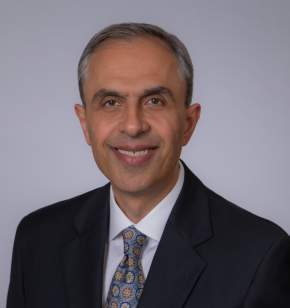Can a Physician Refuse a Second Opinion?


If you have a serious condition requiring neurosurgical care, you may want to seek a second opinion for treatment or management. In most cases, your doctor will welcome the opportunity for you to learn more about your condition and will guide you through this process. However, in rare cases, a doctor may refuse to provide a second opinion referral. If you or someone you know is facing a second opinion refusal, you will want to read the information below.
Is It Considered Rude To Ask for a Second Opinion?
No. If you feel that you need to get a second opinion, ask for one - especially when the second opinion may change how a cancer or other life-altering condition should be treated or managed. Most conscientious doctors and other health care team members understand and value the patient's right to seek a second opinion. Also, in most instances, seeking a second opinion is appropriate and encouraged - it may even be required by your insurance. In short, it should never be considered rude for a patient to ask for a second opinion.
When and Why Should You Ask for a Second Opinion?
There are many reasons why you may want to ask for a second opinion. Consider seeking a second opinion if you are experiencing the following, and do so as soon as you think it would be beneficial:
- You want to explore all possible options—this is particularly important if the medical decisions being made will significantly impact your life.
- Your initial doctor is unsure—for a complex or rare condition, seek a second opinion from a doctor that has specialized training and experience working with conditions like yours.
- You are experiencing communication difficulties with your current healthcare team—asking for a second opinion allows you to meet other healthcare teams that may be better able to provide care that aligns with your health goals.
- You want to achieve the confidence you need in your final decision.
Deciding when to ask for a second opinion can be challenging. The reasons mentioned above are not the only reasons why you should be seeking more information. Simply feeling like “something is not right” despite others telling you otherwise, or that there are other medical options out there that are not being discussed with you can be reasons to pursue a second opinion.
Why should you have your surgery with Dr. Cohen?
Dr. Cohen
- 7,500+ specialized surgeries performed by your chosen surgeon
- More personalized care
- Extensive experience = higher success rate and quicker recovery times
Major Health Centers
- No control over choosing the surgeon caring for you
- One-size-fits-all care
- Less specialization
For more reasons, please click here.
Asking for a Second Opinion: Best-Case Scenario
Second opinions are almost always a reasonable idea in high-risk or complex elective procedures. When a second opinion is granted, it is important to be upfront and honest with your concerns so that they are handled to your satisfaction.
The best-case scenario involves neurosurgeons exchanging information in a collaborative manner. You will want both doctors to review your records and provide open and honest feedback on your condition, treatment options, and expected outcome. You should be informed of their communications.
Can a Doctor Refuse To Prescribe Medications?
Yes. If a doctor feels that prescribing medications (such as opiates) can lead to addiction or other harmful effects, he or she may refuse to prescribe certain medications. Similarly, if the prescription the patient is asking for is not appropriate for a given condition, the doctor may refuse to prescribe the medication for that purpose.
However, the doctor may not refuse to prescribe medications to a person based on the individual’s factors such as belonging to a specific group or identifying as a specific gender and/or race. In many cases, such as the treatment of ongoing chronic pain, it is not unusual for a doctor to refer treatment to a more specialized doctor – such as a pain management specialist. This often ensures the best quality care for the patient.
Can a Doctor Decide To Stop Treating a Patient?
Yes. A doctor may refuse to see a patient if the individual is abusive or threatening, if they cannot pay, or if the treatment the patient requires is outside of the scope of the doctor's training or practice. However, a doctor cannot refuse medical treatment to a patient who presents in an emergency or life-threatening situation.
In addition, the doctor cannot refuse treatment based on a patient belonging to a particular group, as mentioned before. Finally, the doctor cannot abruptly stop treating you. Many states have laws in place that dictate how a doctor must give notice to a patient that treatment will stop so that they can find another provider.
Key Takeaways
- Getting a second opinion is acceptable, appropriate, and in most cases, welcomed.
- If you do find yourself facing a second opinion refusal, make an appointment with the doctor to discuss why and to understand what course of action they recommend instead.
- In many cases, doctors encourage, support, and embrace your decision to seek a second opinion.











